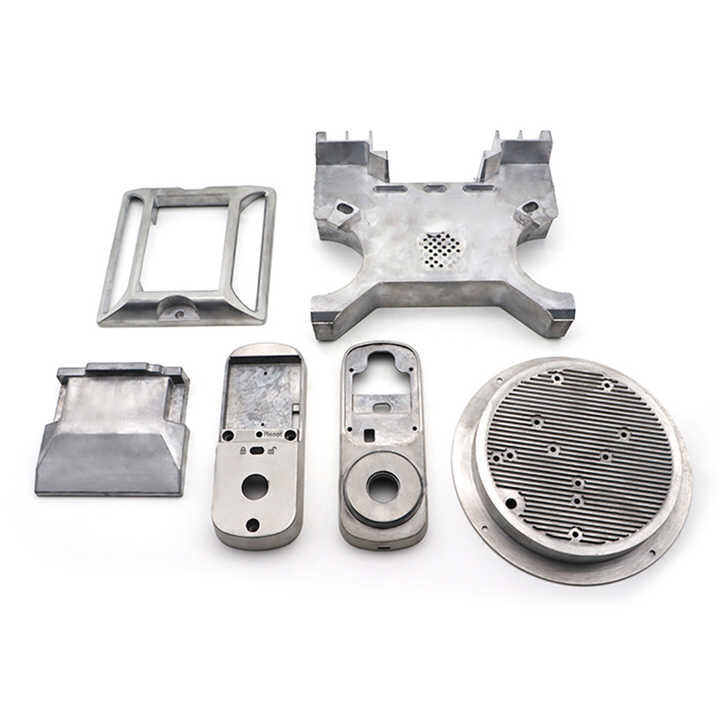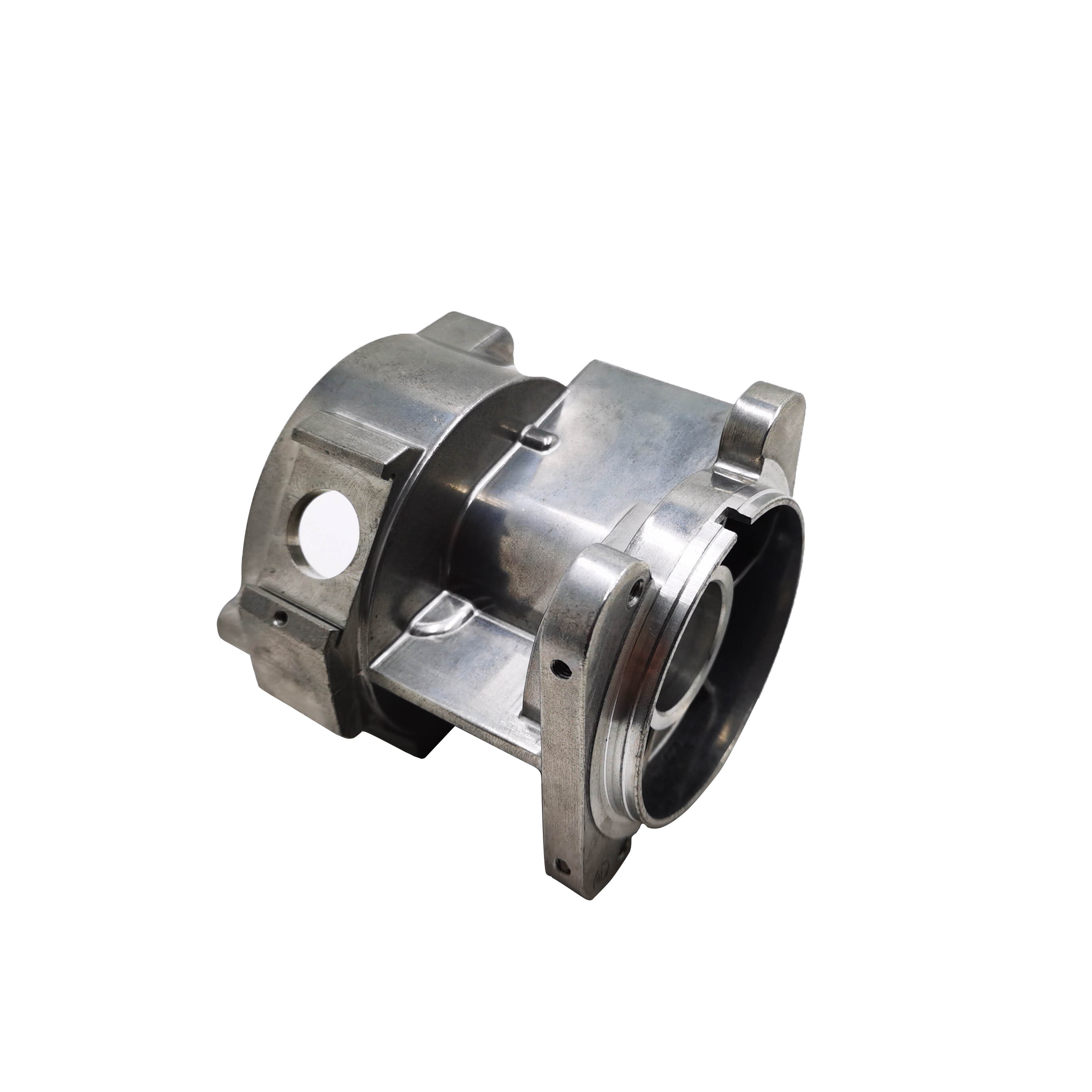Precision aluminum casting and Aluminum Foundry partnerships that support industrial success
Wiki Article
Exploring the Function of Factory Solutions beforehand Modern Design Solutions
Factory solutions are crucial in forming modern design remedies - aluminum casting. They connect the space between conventional manufacturing methods and the demands of contemporary markets. With developments in automation and sustainability, factories are progressing to satisfy the requirements of markets such as aerospace and vehicle. This improvement questions about the effects for products, processes, and future innovations. What challenges and opportunities exist in advance for foundry solutions in this swiftly altering landscape?The Development of Foundry Providers in Design

The combination of computer-aided layout (CAD) and simulation software has reinvented the layout and production processes, making it possible for shops to produce complex geometries with higher accuracy. The shift towards environmentally friendly methods has actually led to the fostering of greener modern technologies and reusing efforts within foundries. As industries progressively focus on modification and rapid prototyping, foundry solutions have broadened their capabilities, guaranteeing they remain crucial factors to the engineering landscape. This evolution underscores the shop's essential function in supporting innovations across different industries, consisting of automotive, aerospace, and energy.
Secret Procedures and Strategies in Modern Foundries
Modern factories employ a range of crucial procedures and methods that improve the performance and high quality of metal spreading. Amongst these, sand spreading continues to be widespread as a result of its flexibility and cost-effectiveness. The usage of sophisticated innovations, such as computer-aided layout (CAD) and computer-aided production (WEB CAM), permits for specific modeling and manufacturing, ensuring high precision in element dimensions. Furthermore, investment casting is favored for generating complicated geometries with superb surface finishes.Furthermore, automation and robotics boost production speed and consistency while minimizing labor expenses. Strategies like additive manufacturing are significantly incorporated to produce complex mold and mildews and cores, therefore lessening material waste. The application of thermal analysis aids in maximizing casting procedures by predicting and regulating solidification behavior. Jointly, these processes and methods exemplify just how modern foundries are adjusting to fulfill the needs of modern design obstacles, making certain exceptional item high quality and operational efficiency.
The Importance of Products Selection in Foundry Providers
Selecting the proper materials is important in factory solutions, as it straight affects the mechanical buildings, resilience, and overall performance of the final product. Different products possess distinct features, such as tensile stamina, deterioration resistance, and thermal stability, which should line up with the desired application of the actors components. For example, metals like light weight aluminum and steel are typically selected for their strength-to-weight ratio, while alloys can improve specific efficiency characteristics.Moreover, the selection procedure involves considering elements such as manufacturability, expense, and availability, which can significantly affect task timelines and spending plans. Furthermore, developments in product scientific research allow the growth of innovative compounds and specialized alloys that provide to emerging engineering difficulties. As a result, a comprehensive understanding of product homes and their ramifications is essential for designers and factory experts to accomplish effective end results in their jobs. This careful option procedure inevitably improves the dependability and performance of completion products.
Factory Services in Aerospace and Automotive Applications
Factory solutions play a crucial duty in the aerospace and automotive markets, where accuracy and performance are critical. These markets rely greatly on the manufacturing of facility elements that must satisfy strenuous quality requirements and hold up against extreme problems. Factories give essential solutions such as spreading, machining, and completing, making sure components are lightweight yet robust, necessary for boosting gas performance and security.In aerospace, shop services add to the production of generator blades, engine elements, and structural parts, every one of which need high-performance products and intricate designs. In a similar way, in the automotive market, foundries supply engine blocks, framework components, and transmission cases, concentrating on longevity and weight decrease.
Advanced foundry strategies, consisting of additive production and accuracy spreading, are significantly utilized to satisfy the particular needs of these sectors. By supplying customized services, foundry solutions assist drive advancement and preserve competitive benefits in the fast-evolving aerospace and vehicle landscapes.
Developments Driven by Foundry Capabilities
Countless advancements in engineering are fueled by the innovative abilities of foundry solutions. These services enable the manufacturing of complicated geometries and high-performance products that are necessary for contemporary applications. For example, additive production, typically recognized as 3D printing, has actually seen considerable advancements via factory techniques, permitting the fast prototyping of elaborate layouts. Additionally, the capacity to cast light-weight alloys has changed markets such as aerospace and auto, resulting in boosted fuel effectiveness and performance.Shops are increasingly integrating wise modern technologies, such as automation and data analytics, to boost production effectiveness and top quality control. These developments not just lower waste but likewise make it possible for customization at scale, satisfying the specific requirements of clients. By leveraging sophisticated factory capacities, engineers can check out brand-new frontiers in product design and performance, inevitably driving progress across various industries and developing a structure for future innovations.
Future Trends in Foundry Solutions and Engineering Solutions
The future of foundry services is shaped by emerging patterns such as lasting production techniques, which focus on environmental responsibility. Automation and smart technologies are established to boost performance and accuracy, while increasing customization and versatility will meet the evolving demands of customers. As these fads progress, they will certainly redefine the landscape of engineering services in the foundry industry.
Lasting Production Practices
As markets significantly focus on ecological duty, sustainable production techniques within foundry services are coming to be vital to modern-day engineering remedies. These techniques focus on reducing waste, reducing power usage, and utilizing eco-friendly products throughout the production process. By applying methods such as recycling scrap steel and enhancing melting processes, shops can significantly lower their carbon impact. Furthermore, the adoption of life cycle analyses enables producers to review the environmental impact of their items from creation to disposal. Collaborating with suppliers devoted to sustainability additionally improves the effectiveness of these campaigns. Inevitably, embracing lasting manufacturing not only straightens with global ecological objectives however likewise cultivates technology and competition in the rapidly evolving design landscape.Automation and Smart Technologies
While numerous sectors are welcoming technical advancements, shop solutions are experiencing a significant makeover via automation and clever modern technologies. The integration of robotics and automated systems enhances production effectiveness, lowers human error, and speeds up the production procedure. Smart technologies, such as IoT and AI, allow real-time surveillance and anticipating maintenance, which optimize operational efficiency and decrease downtime. These advancements assist in data-driven decision-making, permitting shops to respond quickly to market needs and boost item quality. Furthermore, automation lowers labor costs and enhances work environment safety and security by handling harmful jobs. As foundry solutions proceed to adopt these developments, they are positioned to redefine design solutions, resulting in increased competitiveness and sustainability in the manufacturing market.Modification and Flexibility Patterns
Arising trends in foundry services increasingly emphasize customization and flexibility to meet distinct client requirements. This change shows a wider need for tailored design options that adjust to details job demands and sector requirements. Business are buying sophisticated technologies, such as additive manufacturing and digital modeling, enabling them to generate tailored parts effectively and cost-effectively. Consequently, factories are moving away from one-size-fits-all strategies, supplying customers the capability to modify designs and products in real-time. Furthermore, collaboration between design teams and foundry solutions is ending up being more integrated, fostering innovation and speeding up time-to-market. This pattern not just enhances product efficiency but also supports sustainability by minimizing waste with specific production processes.Regularly Asked Concerns
What Are the Regular Expenses Connected With Foundry Services?
Normal prices connected with shop services include product expenses, labor fees, equipment usage Precision aluminum casting costs, and overhead expenses - Aluminum Casting Company. These expenses can vary extensively based on job intricacy, quantity, and particular needs of the engineering option entailedHow much time Does the Shop Process Normally Take?
The shop process commonly takes anywhere from several weeks to a few months, relying on elements such as intricacy, product requirements, and production quantity, which can greatly influence timelines and general job distribution.What Industries Benefit Many From Factory Providers?
Industries such as auto, aerospace, and construction benefit significantly from factory solutions. These fields depend on precision casting and metal construction to produce intricate parts, boosting item performance and operational efficiency in their particular applications.What Accreditations Should Shops Have?
Factories should possess qualifications such as ISO 9001 for top quality monitoring, ISO 14001 for environmental management, and specific industry certifications like AS9100 for aerospace or IATF 16949 for automotive, ensuring conformity and quality control.Just How Do Foundries Make Certain Quality Assurance in Their Procedures?

Factory services are crucial in shaping modern design solutions. As design disciplines have actually advanced, the function of foundry services has actually transformed substantially to satisfy evolving market needs. As markets significantly prioritize modification and rapid prototyping, factory solutions have increased their capabilities, guaranteeing they remain necessary contributors to the engineering landscape. As markets increasingly prioritize ecological duty, sustainable production techniques within foundry solutions are ending up being crucial to modern design services. In addition, collaboration between design teams and shop services is ending up being extra integrated, fostering advancement and increasing time-to-market.
Report this wiki page